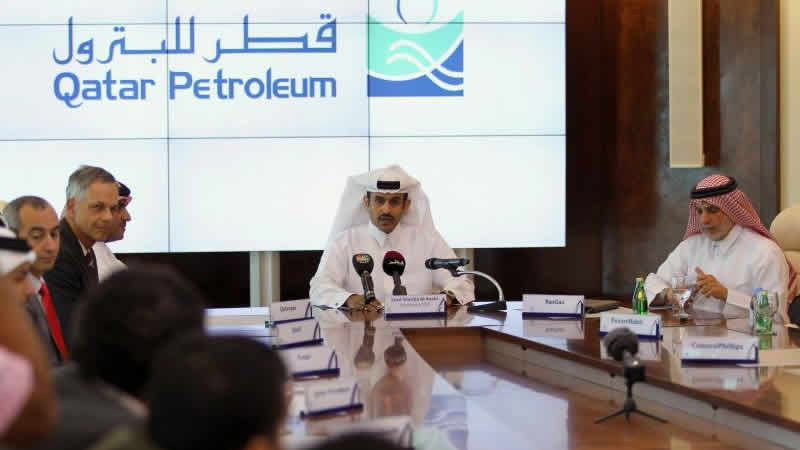Energy giant Qatar Petroleum said in a statement on Saturday that it was “business as usual” despite a spiralling diplomatic crisis involving Doha and its Gulf neighbours.
[contentblock id=2 img=gcb.png]
In an attempt to reassure customers, the state-run company said it had “mobilised all available resources” to mitigate any actions that could disrupt supplies. Qatar Petroleum, and its subsidiaries, wishes to affirm that it is conducting business as usual throughout all its upstream, midstream and downstream businesses and operations, and in all activities across all of QP’s world-class facilities,” the statement read.
Qatar is the world’s largest exporter of Liquified Natural Gas (LNG), and produces up to 77 million tonnes of gas each year. In April, Qatar announced it was boosting output in the world’s largest gas field, the North Field, off the Gulf state’s northern coast, which it shares with Iran.
[contentblock id=1 img=adsense.png]
Gas has helped transform the tiny emirate into one of the richest countries in the world, fuelling its rise into a major regional player and helping fund huge infrastructure projects such as the 2022 football World Cup, which will be hosted by Qatar. Qatar Petroleum’s statement comes during the biggest diplomatic crisis to hit the Gulf states in years.
Read More: Saudi, Allies Issue Qatar-Linked ‘Terrorism’ List
On Monday, Saudi Arabia, the United Arab Emirates, Egypt and Bahrain led a string of countries that cut ties with Qatar over what they say is the emirate’s financing of extremist groups and its ties to Iran, Saudi Arabia’s regional arch-rival.
Qatar vehemently denies the claims, and says it is the victim of an orchestrated campaign to force Doha to change its foreign policy. The row threatens to draw in many countries, and on Friday US President Donald Trump accused Qatar of being a “funder of terrorism at a very high level”.
[contentblock id=3 img=adsense.png]
On Saturday, Qatar’s Foreign Minister Sheikh Mohammed bin Abdulrahman Al-Thani continued a diplomatic offensive in Europe, meeting his Russian counterpart Sergei Lavrov in Moscow.












